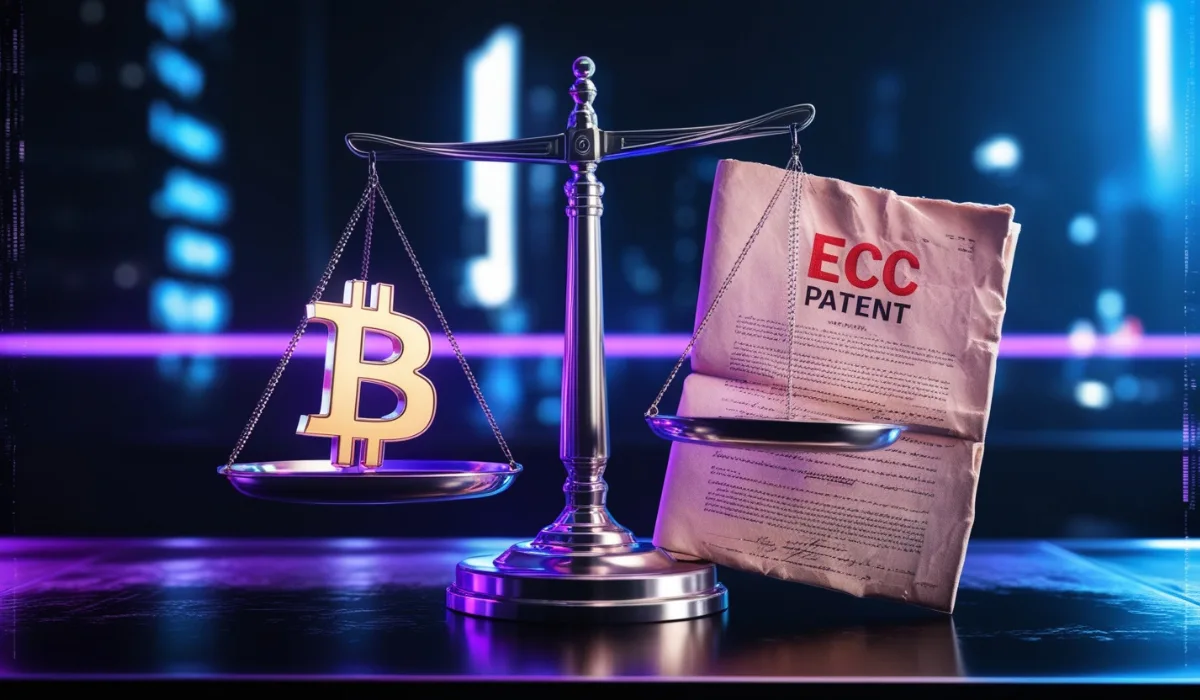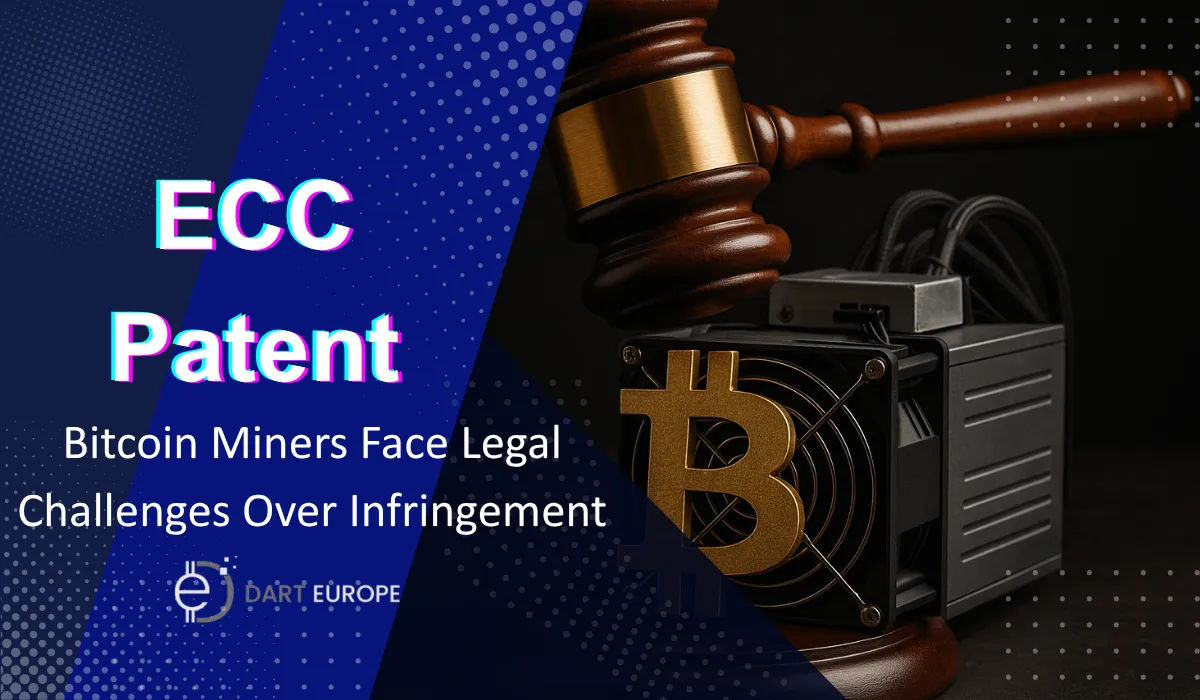In a move that could disrupt the Bitcoin ecosystem, major US-listed mining firms, Marathon Digital (MARA) and Core Scientific (CORZ), have been sued by a company claiming to hold patents to the Elliptic Curve Cryptography (ECC) technology that is foundational to the blockchain’s architecture.
Malikie Innovations, a patent monetization firm, acquired 32,000 “non-core” patents from the former phone maker and communications technology giant BlackBerry in 2023 for $900 million. As part of the deal, Malikie will enforce the patents on BlackBerry’s behalf.
Malikie Innovations claims US Bitcoin Miners are infringing its IP by using ECC Tech to process Bitcoin Transactions
Among the tens of thousands of patents, there were several intellectual properties (IPs) relating to ECC, the fundamental technology underpinning the Bitcoin network. The algorithm is used on the blockchain to generate private-public key pairs and create and verify digital signatures.
Although the technology is strongly associated with Bitcoin’s pseudonymous creator, Satoshi Nakamoto, the patent firm claims that it was originally developed in collaboration between BlackBerry and another company called Certicom. The original co-inventors on the patent are Certicom researchers Dan Brown, Robert Gallant, Robert Lambert, and Scott Vanstone.
In its lawsuit, Malikie states that the “ground-breaking” innovations in elliptic curve cryptography were recognized and selected by the “designers of Bitcoin”, and by using the algorithm, miners like Mara and Core Scientific are infringing a technology covered under its patents to operate some of the largest Bitcoin mining operations in the world, engaging in on-chain transactions, and managing proceeds.
This litigation poses serious risks to any miner running the Bitcoin Core, as they could be targeted in the same manner. Malikie is accusing the defendants of infringing its ECC patent by “making, using, testing, selling, offering for sale, and importing hardware or software” that comply with the Bitcoin protocol, such as mining equipment and BTC wallets.

Miners Could Be Forced to Pay Royalties for the Duration Malikie has Held the ECC Patents
In an interview with crypto news outlet Cointelegraph, Aaron Brogan, founder and managing attorney at Brogan Law, said that it is “unlikely” that lawsuits like Malikie’s will affect individual Bitcoin users, even if the patents are found to be valid. On the other hand, miners are wealthy targets for the plaintiff as they hold large amounts of capital.
According to Brogan, if Malikie’s claim prevails, they will be able to recover up to six years of lost royalties in BTC, an inconceivable sum. Such cases often pass on to a secondary trial, and it is reasonable to assume that in such a scenario, the defendants, Mara and Core Scientific, will be forced to file for bankruptcy.
The lawyer also noted that winning the case would establish a precedent for Malikie to pursue legal challenges against other Bitcoin miners in the United States, warning that it could lead to disastrous consequences for the world’s largest and most valuable cryptocurrency.
Brogan argued that Malikie is much more likely to extract a fee until the patents expire, rather than deciding to tank the entire industry.
Meanwhile, Niko Demchuk, head of legal at cryptocurrency compliance and forensics firm AMLBot, told Cointelegraph that the company’s claim appears “not so strong” if the patents that it asserts are expired or cover techniques that predate Bitcoin’s ECC adoption. He noted that even if some of the patents remain active, Malikie’s scope is likely to be limited to specific implementations, and not the core ECC algorithm used in Bitcoin.
Nevertheless, the outcome of the case depends on the specific details of the patents and the court’s interpretation of their scope.
Also Read: Crypto Warning: Kiyosaki Says Silver Outshines Bitcoin in 2025 Market Crash
Dr. Craig Wright – the Computer Scientist who went to Court Claiming to be Satoshi Nakamoto
This is not the first time that IP-related lawsuits have been aimed at Bitcoin. In 2019, Australian mathematician and computer scientist Dr. Craig Wright made a radical but unsuccessful attempt to prove that he is Satoshi Nakamoto, the father of Bitcoin. Wright, who holds 114 blockchain-related patents, tried to claim ownership of key parts of the technology behind Bitcoin specified in the white paper. He managed to temporarily force the bitcoin.org website to take down its copy of the Bitcoin White Paper, which was reuploaded following a court verdict in 2023.
He conceptualized that the entire Bitcoin ecosystem, including miners and exchanges, is a legal partnership. However, the case was dropped before it reached trial after Bitcoin advocacy groups managed to thwart Wright’s claims.
Lawsuits asserting ownership over Bitcoin and its underlying technologies are becoming commonplace as the digital currency ecosystem has become more lucrative and is being integrated into mainstream finance at light speed.

